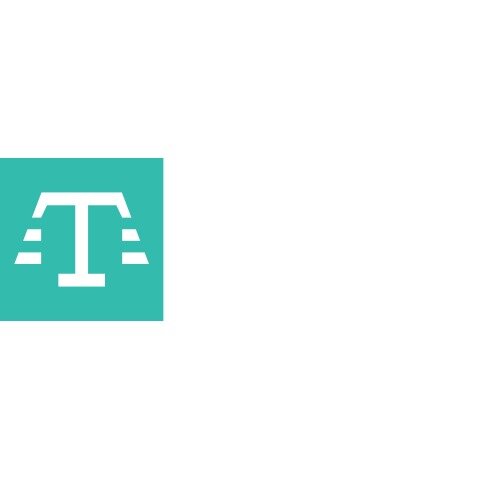Best Collaborative Law Lawyers in Tabriz
Share your needs with us, get contacted by law firms.
Free. Takes 2 min.
Free Guide to Hiring a Family Lawyer
List of the best lawyers in Tabriz, Iran
About Collaborative Law in Tabriz, Iran
Collaborative Law is a legal approach aimed at resolving disputes amicably outside the courtroom, focusing on cooperation and negotiation between parties. In Tabriz, Iran, this method is gaining popularity, particularly for family law cases such as divorces and child custody disputes. Collaborative law aims to create a mutually agreeable solution that satisfies all parties involved, eliminating the adversarial aspect often found in traditional litigation.
Why You May Need a Lawyer
There are several reasons why seeking legal help in the field of Collaborative Law might be necessary. These can include navigating complex family disputes like divorce or separation, managing the division of assets, establishing child custody arrangements, or dealing with contractual disagreements. A lawyer with expertise in Collaborative Law can provide guidance, ensure fair negotiations, and help you avoid potential legal pitfalls.
Local Laws Overview
In Tabriz, local laws surrounding Collaborative Law procedures emphasize confidentiality and voluntary participation. Participants must consent to full disclosure of information, fostering an environment of transparency. Legal professionals involved are typically bound to withdraw if the process fails, encouraging a genuine commitment to collaboration. The increasing recognition of Collaborative Law by the Iranian legal framework offers a supportive backdrop for those seeking peaceful dispute resolution mechanisms.
Frequently Asked Questions
What is Collaborative Law?
Collaborative Law is a legal process focused on resolving disputes outside of court through negotiation, where both parties and their attorneys work together to reach an agreement.
How is Collaborative Law different from mediation?
While both processes aim to resolve disputes without litigation, Collaborative Law involves each party having their own attorney to guide negotiations, unlike mediation which typically involves a neutral third party mediating between the parties.
Is Collaborative Law legally binding?
Yes, any agreement reached through the Collaborative Law process can be made legally binding via a formal contract, provided it complies with relevant legal standards.
Can Collaborative Law be used for business disputes?
Absolutely. While it's often associated with family law, Collaborative Law can also address business disputes, property conflicts, and other civil disputes.
What happens if the Collaborative Law process fails?
If the process fails, the lawyers involved must withdraw, and the parties can pursue other dispute resolution methods like litigation or arbitration.
How long does the Collaborative Law process take?
The duration varies depending on the complexity of the case and the willingness of the parties to cooperate, but it typically takes less time than litigation.
Do I need a lawyer for Collaborative Law?
Yes, having a lawyer is crucial in the Collaborative Law process to ensure your rights and interests are protected and to facilitate constructive negotiations.
What costs are associated with Collaborative Law?
Costs can vary, but generally, Collaborative Law can be less expensive than going to court due to shorter timeframes and reduced procedural costs.
Is Collaborative Law suitable for everyone?
Collaborative Law is best suited for parties willing to communicate openly and prioritize amicable resolutions. In cases involving severe power imbalances or abuse, other legal avenues might be more appropriate.
How do I start the Collaborative Law process?
The first step is to consult with a lawyer experienced in Collaborative Law who can guide you on initiating the process and prepare you for the negotiations ahead.
Additional Resources
Individuals seeking assistance in Collaborative Law in Tabriz can consult the following resources:
- Local Family Law Offices
- Tabriz Bar Association
- Iranian Family Law and Mediation Center
- Government-run Legal Aid services
Next Steps
If you need legal assistance in the field of Collaborative Law, it is advisable to start by contacting a lawyer specializing in this area. Discuss your case and explore whether Collaborative Law is the right approach for your situation. Initial consultations can provide clarity and prepare you for the formal negotiation process. Prioritizing open communication and a cooperative mindset will also support a smoother path to resolution.
Lawzana helps you find the best lawyers and law firms in Tabriz through a curated and pre-screened list of qualified legal professionals. Our platform offers rankings and detailed profiles of attorneys and law firms, allowing you to compare based on practice areas, including Collaborative Law, experience, and client feedback.
Each profile includes a description of the firm's areas of practice, client reviews, team members and partners, year of establishment, spoken languages, office locations, contact information, social media presence, and any published articles or resources. Most firms on our platform speak English and are experienced in both local and international legal matters.
Get a quote from top-rated law firms in Tabriz, Iran — quickly, securely, and without unnecessary hassle.
Disclaimer:
The information provided on this page is for general informational purposes only and does not constitute legal advice. While we strive to ensure the accuracy and relevance of the content, legal information may change over time, and interpretations of the law can vary. You should always consult with a qualified legal professional for advice specific to your situation.
We disclaim all liability for actions taken or not taken based on the content of this page. If you believe any information is incorrect or outdated, please contact us, and we will review and update it where appropriate.








